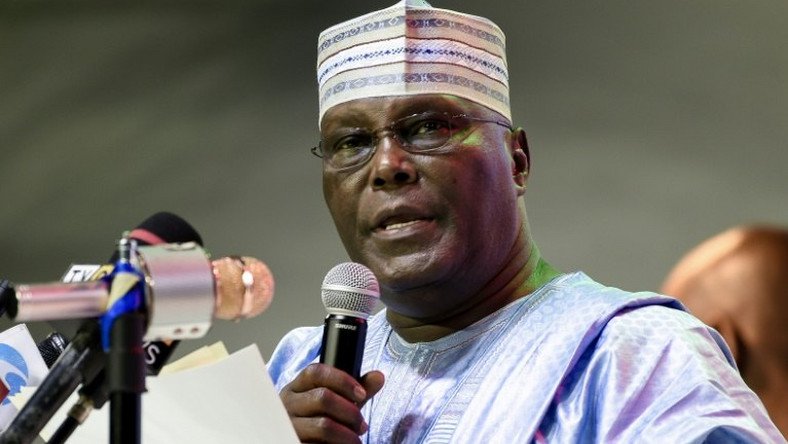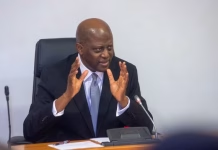With approval anticipated for a total of $1.7 billion in loans, the Federal Government is about to obtain a new loan from the World Bank. According to official documents that was obtained, the loan is expected to be approved on September 26, 2024.
The funds will be allocated through three major development projects designed to bolster Nigeria’s economic stability and enhance its resource mobilization capabilities.
The first project is the Nigeria: Primary Healthcare Provision Strengthening Programme, which is set to receive $500m.
The second project, Nigeria Human Capital Opportunities for Prosperity and Equity Governance, has proposed funding of $500m.
While the Sustainable Power and Irrigation for Nigeria Project will receive the highest funding of $700m.
The document stated that these projects have reached the negotiation stage and are expected to be approved on September 26, 2024. (As of board presentation).
The negotiation stage, the final phase of the loan process, indicates that the request has successfully cleared the appraisal stage between Nigeria, represented by the Minister of Finance, and the World Bank.
If approved, Nigeria will have secured a total of $3.95bn in loans from the bank this year alone and a cumulative $6.65bn under the administration of President Bola Tinubu.
The proposed loan projects, targeting crucial sectors such as healthcare, agriculture, and infrastructure, are pivotal for the country’s sustainable development and economic stability.
The Nigeria Human Capital Opportunities for Prosperity and Equity, which will receive $500m, focuses on enhancing human capital by improving education, health, and social protection services.
According to the draft copy of the Environment and Social Systems Assessment prepared by the bank, the project is to improve quality and utilisation of essential health care services and health system resilience in Nigeria.
The document read, “The proposed HOPE-Health provides a Sector-Wide Approach platform, leveraging significant additional resources to support a critical agenda.
“By aligning donor financing with the government’s resources, the proposed operation will foster convergence around a common set of results that are reflective of Nigeria’s disease burden.
Continuing, it said, “The Programme Development Objective is to improve quality and utilisation of essential healthcare services and health system resilience in Nigeria. Four PDO-level indicators align with the PDO emphasis on utilization, and quality of essential health care services.
“Number of women and children who receive tracer essential health services by community health workers. The number of PHC facilities achieving service readiness assessment criteria. The proportion of deliveries with skilled birth attendants present and the number of empaneled EDGE level 1 CEmONC facilities certified.”
The project involves several implementing agencies, including the Federal Ministry of Budget and Economic Planning, the Federal Ministry of Health and Social Welfare, and the Federal Ministry of Education.
Additionally, the international lender has highlighted that the loan for the “Nigeria: Primary Healthcare Provision Strengthening Program” aims to strengthen Nigeria’s primary healthcare system by improving infrastructure, training healthcare professionals, and enhancing service delivery. This initiative will be managed by the Ministry of Health.
The third project, the “Sustainable Power and Irrigation for Nigeria Project,” will focus on sustainable power generation and irrigation, which are critical for agricultural and industrial development. It will be overseen and implemented by the Federal Ministry of Water Resources and Sanitation.
Two loan requests including the Rural Access and Agricultural Marketing Project – Scale Up project will receive $500m by December 16, 2024, and the Solutions for the Internally Displaced and Host Communities Project has been slated for an approval date of April 8, 2025.
Recall that on June 13, the World Bank announced the approval of two loan projects aimed at bolstering Nigeria’s economic stability and supporting its vulnerable populations.
According to a statement from the bank, the combined package, totaling $2.25bn, comprises the $1.5bn Nigeria Reforms for Economic Stabilization to Enable Transformation Development Policy Financing Program and the $750m Nigeria Accelerating Resource Mobilization Reforms Program-for-Results.
Already, the international lender has received $751.88m of the $1.5bn under the Nigeria Reforms for Economic Stabilisation to Enable Transformation.
Under President Bola Tinubu’s administration, Nigeria has secured a total of $4.95 billion in loans from the World Bank, amid concerns over rising external debt servicing costs.
The approved loan projects, not less than six, includes funding for power ($750 million), women empowerment ($500 million), girls’ education ($700 million), renewable energy ($750 million), economic stabilization reforms ($1.5 billion), and resource mobilization reforms ($750 million).
According to the Debt Management Office’s external debt stock report, as at March 31, 2024, Nigeria owed the World Bank $15.59 billion.
On Tuesday,reports revealed that in six months, 20 state governors have borrowed N446.29bn. This showcases the evident financial burden the sub-nationals face presently.
This article was written by Tamaraebiju Jide, a student at Elizade University












